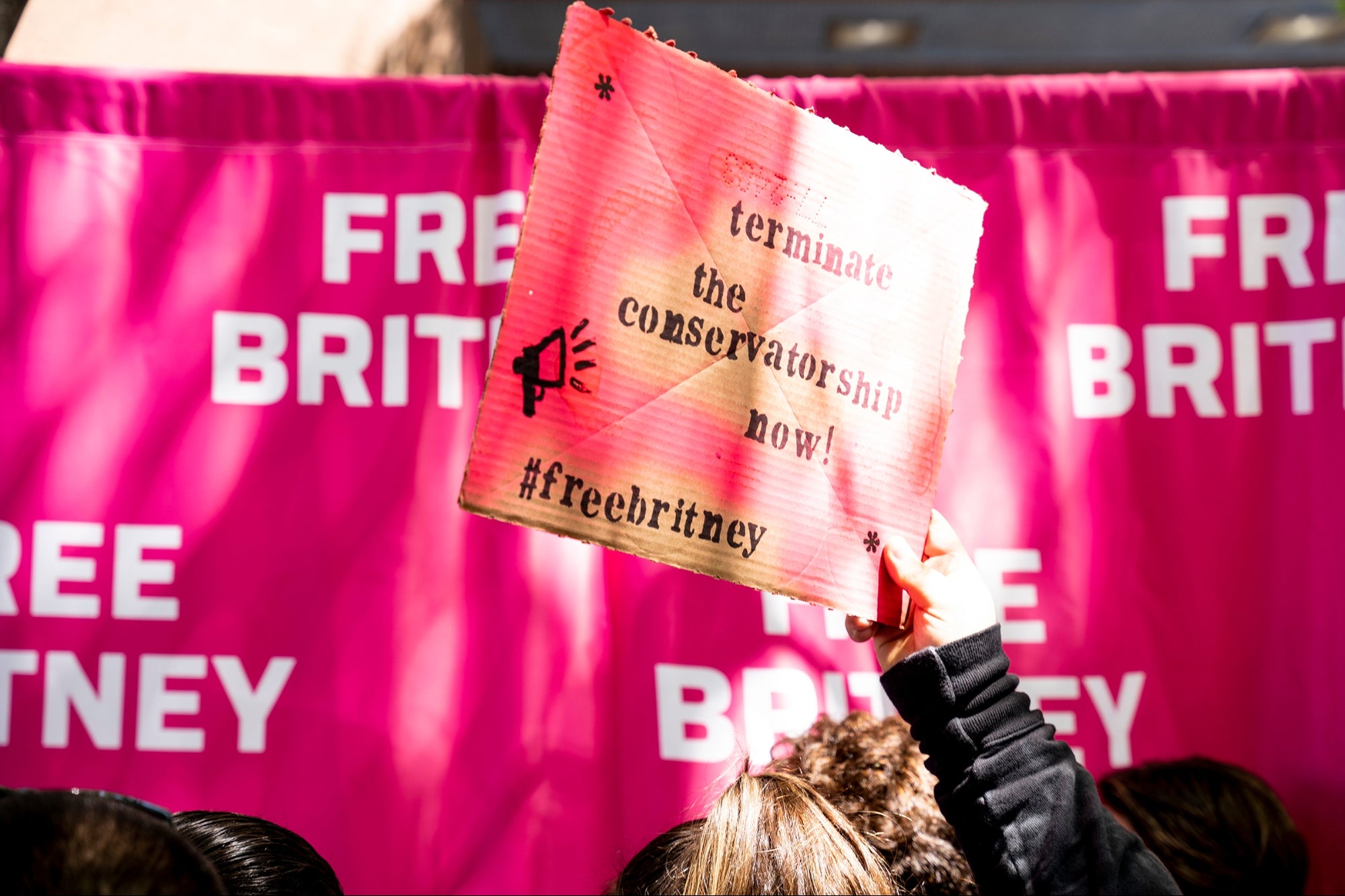
June
28, 2021
6 min read
Opinions expressed by Entrepreneur contributors are their own.
On June 23, Britney Spears gave a passionate testimonial to the California Superior Court in a plea to end her 13-year conservatorship. It’s quite clear that this has become an administrative burden on Britney, and not just an impairment of her rights. The #FreeBritney movement sheds a spotlight on the issue of conservatorship, and many are questioning if we should do away with it altogether. The case also highlights the fact that conservatorship can be an extreme option and there should be additional, less intrusive options to protect those who fall in the grey area.
Conservatorship 101
A conservatorship is when a court appoints someone to act on behalf of an individual. This occurs when the court deems that the individual is incapacitated and unable to manage their own affairs. The conservator then holds the legal rights to act for the conservatee.
There are two main types of conservatorship: conservator of the estate and conservator of the person. A conservator of the estate handles the conservatee’s business and financial affairs. A conservator of the person handles the conservatee’s individual needs, such as health care, medical needs and housing. There are some cases in which an individual is granted a limited conservatorship. For example, an adult with a mental impairment who is able to care for themselves, but isn’t able to manage their own finances, would make a good candidate for a limited conservatorship. In Britney’s case, however, her conservatorship is both of the estate and of her person. This is a common scenario.
Although standards vary from state to state, the court makes a factual determination that a conservatee is unable to manage their own affairs. They will review evidence, hear testimonies and conduct court-initiated investigations and assessments. Once appointed, a conservatorship is subject to ongoing review.
In Britney’s case, her request to terminate her conservatorship is legitimate, hence why the courts are reviewing it. However, in order to terminate the conservatorship, the court has to make an evidence-based decision. Britney is requesting to bypass a mental evaluation, and she has yet to officially file to end the conservatorship. If she wants to take the path of least resistance, her best chance would be to submit to another mental assessment. We’ll see how this all plays out in the coming months.
Should we do away with conservatorship?
My short answer to this question is “no.” From a moral, ethical and legal perspective, conservatorship is an extreme step that may seem to violate basic principles of justice and equality in American society. The court is taking away your rights and giving them to another person. It’s perhaps one of the harshest legal remedies, but even so, there are still times when it’s appropriate. There are individuals who clearly do not have the ability to take care of themselves, whether it’s due to advanced age, mental impairment or some other disability. Conservatorship is designed to protect those people in need. Proposing that we do away with conservatorships altogether would deprive those people who are in dire need of a resource that is providing them with help.
The difficult question is what we should do in edge-case situations. The #FreeBritney conversation is an important and timely one, because it begs the question of when a conservatorship is inappropriate. There are clearly people who need it, and those who don’t need it, but what about the people who land somewhere in the middle?
What we need is less invasive, less intrusive solutions. Fortunately, estate planning can help in that regard.
Estate planning is the ultimate form of self-empowerment
By establishing an estate plan, you have the opportunity to designate agents in a Power of Attorney and Health Care Directive. You’re not giving away your rights. Instead, you’re voluntarily designating someone who is empowered to exercise your rights when you need help. This is very different from a conservatorship, where you lose your rights completely.
Entrepreneurs and business owners should also look at estate plans as an opportunity to protect their businesses. You can use your estate plan to put a business succession plan in place. By doing so, you’re appointing the person of your choosing to take over in case you become incapacitated. You have the power to protect your legacy in your own way, and not at the hands of another.
To be clear, having a Power of Attorney does not necessarily override conservatorship. The court retains the ability to appoint a conservator, who may be able to revoke your existing estate plan. For example, there could be a case in which a Power of Attorney is taking advantage of someone who is mentally incapacitated. In this case, the court might appoint a conservator as a method to protect that person.
However, estate planning is an effective step you can take to protect yourself. Although it won’t cancel the possibility of conservatorship altogether, you are significantly reducing the need for one. The court will look at the totality of your circumstances, and whether it is necessary to appoint a conservator. If you already have a sound estate plan and your affairs are being handled properly, a court is less likely to exercise a conservatorship. As a business owner, this also helps provide peace of mind that you’ll likely be able to exercise your own succession plan and not someone else’s.
What happens next?
Conservatorship is a sledgehammer of a tool. It’s designed to protect those who really need it. Instead of getting rid of it, we need to make sure we’re only using it when it’s appropriate and absolutely necessary. It begs the question: Are we better off protecting someone even if it invades their rights, or are we better off respecting their rights even though it could lead to harm?
Related: Never Forget the Time Britney Spears Shaved Her Head and Attacked a Photographer With an Umbrella
Conservatorship needs to be reassessed from the social justice lens, including women’s rights. The bottom line is that we need more options, including those that are voluntary. In the meantime, we can all take the necessary precautions and put an estate plan into place to ensure our choices are our own. That way, we empower ourselves by designating how our personal and business affairs should be handled.



